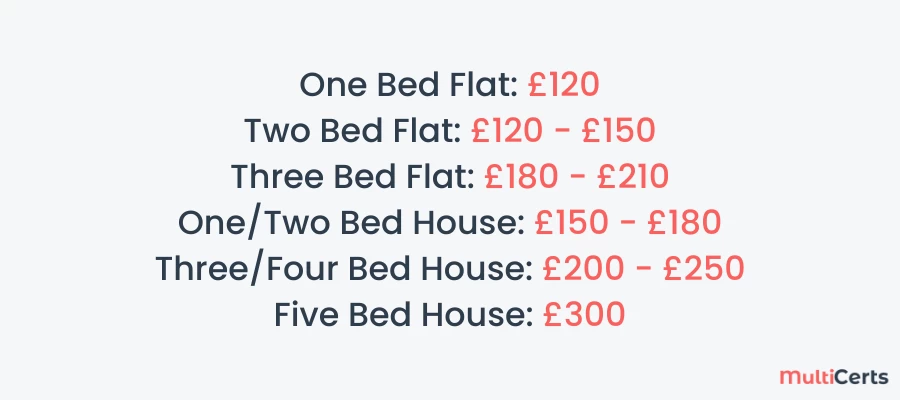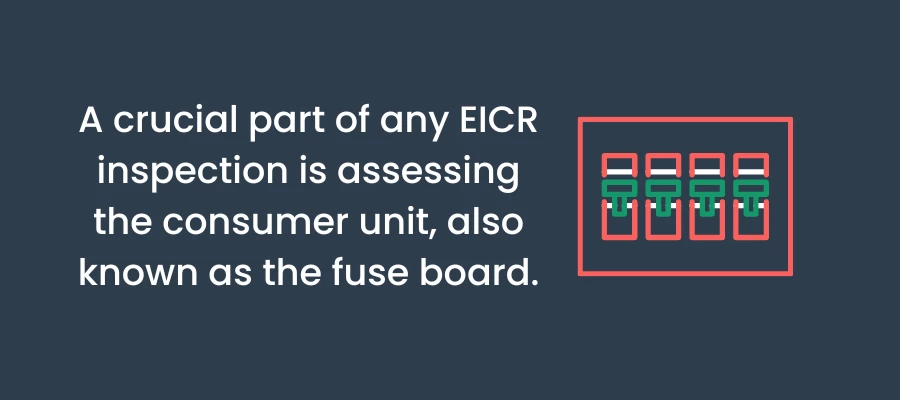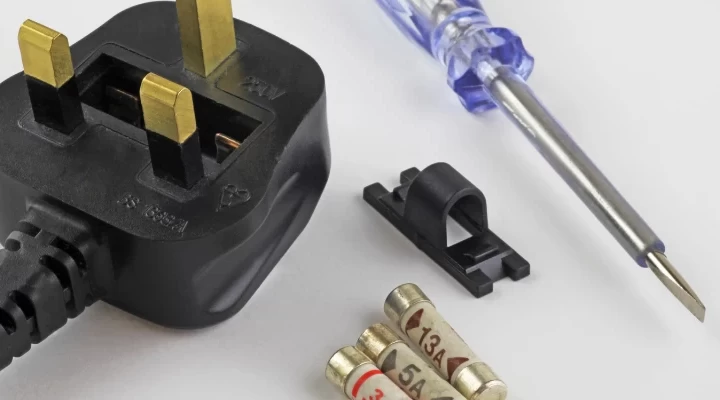Table of Contents
The cost of an EICR varies depending on factors such as property size and geographic location. Generally, the cost can range from around £125 to £300, with larger homes typically falling at the higher end of the price scale. It's essential to consider these expenses when planning to undergo an EICR, as electrical safety is critical not only for protecting the inhabitants but also for ensuring compliance with legal requirements.
It's crucial to remember that an EICR is essential in guaranteeing your property's safety. Weighing the potential risks of faulty wiring and electrical hazards against the cost of an inspection is a small price to pay for a safe and secure living environment.
Importance of EICR
Legal Requirement
As landlords, we are responsible for ensuring our rental properties' electrical safety. In many cases, an Electrical Installation Condition Report (EICR) is a legal requirement to obtain a landlord electrical safety certificate. This report ensures the property's electrical installations and systems are in safe working condition, reducing the risk of electrical faults, damages, or injuries to tenants.
EICR costs can vary depending on the property size, with a one-bedroom rental property costing around £125 while a five-bedroom house costing more than £300. It is important to remember that these costs are ballpark figures and can differ depending on various factors. That said, investing in an EICR is essential to meet the legal requirements set for landlords and property owners.
Electrical Safety for Tenants and Landlords
An EICR is necessary for maintaining the electrical safety of both tenants and landlords. Regular inspections can help:
-
Identify any potential electrical hazards in the property.
-
Assess the wear and tear in electrical installations and systems.
-
Highlight any areas that need improvement or replacement to comply with electrical safety standards.
-
Provide peace of mind for tenants and landlords regarding the property's electrical safety.
As a general guideline, EICR testing should be conducted every:
-
Five years for rental properties
-
Ten years for private residential properties
In summary, a landlord electrical safety certificate ensures rental properties' legal requirements and electrical safety. They are essential for landlords to protect their tenants and safeguard their investments.
Electrical Safety Certificate Costs
Factors Affecting Cost
Several factors can impact the final price when considering the cost of an Electrical Installation Condition Report (EICR). These factors include:
-
The size of the property: Larger properties may require more time and effort to inspect, increasing the cost.
-
Location: EICR costs are higher in cities than in rural areas.
-
Age of the property: Older properties may require more thorough inspections due to outdated electrical systems or wiring.
-
Number of electrical systems: The more electrical systems that need to be inspected, the higher the cost of the EICR.
It's important to note that EICR testing must be carried out by a qualified and competent professional, and their rates may also affect the overall cost of the inspection.
Average Costs
Based on the factors mentioned above, the average cost of electrical safety certificates can vary. However, we can provide some rough estimates for different property sizes:
-
One Bedroom Flat: £120
-
Two Bedroom Flat: £120 - £150
-
Three Bedroom Flat: £180 - £210
-
One/Two Bedroom House: £150 - £180
-
Three/Four Bedroom House: £200 - £250
-
Five Bedroom House: £300
For commercial properties, the cost also depends on the size, but you can expect to pay around £15-20 per circuit tested, excluding VAT.
Remember that these estimates are subject to change based on the specific details of your property and the professional rates of the electrician completing the report.
In conclusion, the cost of an EICR can vary depending on multiple factors. Getting an accurate quote from a qualified professional is crucial to ensure compliance with regulations and safety for your property and its occupants.

EICR Procedure
Inspection and Testing
During the EICR procedure, a qualified electrician will conduct a thorough electrical inspection to ensure that all electrical installations in a property adhere to current safety standards. This electrical safety check aims to offer peace of mind to occupants and property owners that their electrical systems are safe and operate efficiently.
We will inspect components such as wiring, sockets, and consumer units to identify potential hazards or faults. Our qualified electricians will also carry out tests that evaluate the effectiveness of the protective devices in place. This includes evaluating the earthing and bonding of the electrical installations.
EICR Report
Once the electrical inspection and testing are complete, we will provide an EICR report, commonly known as an electrical safety report. This report details the inspection findings and outlines any issues that must be addressed. The issues are categorized into four main categories:
-
C1: Danger present, risk of injury. Immediate action is required.
-
C2: Potential danger with urgent remedial action required.
-
C3: Improvement recommended.
-
FI: Further investigation required.
An EICR report can cost between £125 and £300, depending on the size of the home, as indicated in this price list. It is recommended to get an inspection report every 5-10 years or when there is a change of occupancy in the property to ensure ongoing electrical safety.
Remember, it's essential to have these electrical safety checks carried out by a qualified electrician with experience in EICR procedures to guarantee the accuracy and thoroughness of the inspection report.
EICR Components and Areas
In this section, we will discuss the main components and areas examined during an EICR. We'll cover the Consumer Unit and Fuse Board, Circuits and Wiring, and Electrical Devices and Appliances.
Consumer Unit and Fuse Board
A crucial part of any EICR inspection is assessing the consumer unit, also known as the fuse board. This integral component of your electrical system serves as the central hub for all the circuits in your property. We will examine the unit to ensure it's up to date, complies with safety regulations, and has no signs of damage or unauthorized modifications.
Some issues we may encounter during the inspection include the following:
-
Outdated fuse boards that use older technology, such as re-wirable fuses
-
Poorly installed or modified consumer units
-
Inadequate earthing or bonding

Circuits and Wiring
During an EICR, we will inspect your property's electrical circuits and wiring. Our primary focus will be on identifying any potential hazards or faulty wiring that could pose a risk to safety. We will check the condition of the wiring, looking for signs of wear and tear, corrosion, or any damage caused by pests or moisture.
Furthermore, we will evaluate the overall electrical installation to ensure it meets current safety standards and regulations. This may involve checking for the presence of residual current devices (RCDs) and appropriate circuit protection.
Electrical Devices and Appliances
Finally, an EICR incorporates the inspection of electrical devices and appliances within your property. We will look at fixed electrical fixtures, such as light switches and sockets, to ensure they are in good condition and have been installed correctly.
For commercial properties or properties with a large number of electrical appliances, we may also recommend portable appliance testing (PAT) to guarantee the safety of these devices. PAT is a separate service that involves checking and testing the safety of portable electrical appliances.
In conclusion, electrical safety certificates cover the examination of various components and areas within your property's electrical system. By thoroughly inspecting these areas, we can identify any potential issues and ensure your property remains safe and compliant with current regulations.
For more information, we recommend our guide on Electrical Installation Condition Reports. It covers whether you need an EICR, what it involves, how often you should get it and what to do if you fail.






